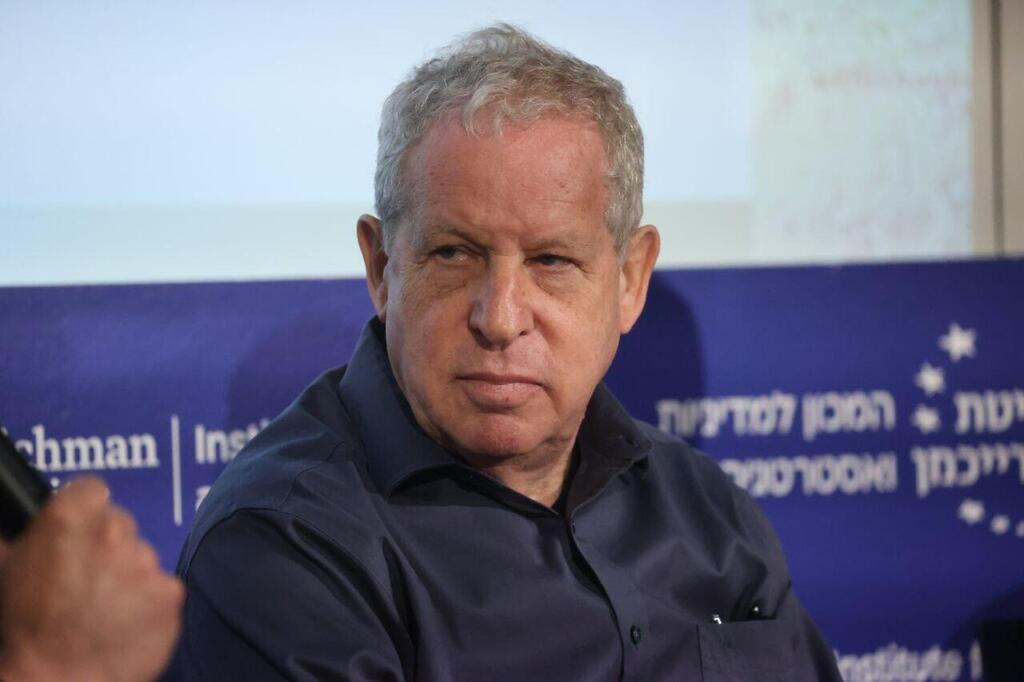Getting your Trinity Audio player ready...
A former senior Israeli security official said Sunday that the framework for judicial reform compromise is dead in the water after the opposition failed to draft an alternative proposal.
Israeli National Security Council Giora Eiland told Ynet that perhaps there was never a chance to reach such a compromise to begin with.
Eiland said he has been hard at work, along with former Justice Minister Daniel Friedman, Professor Yuval Albashan and an organizer of protesters in the hi-tech industry Giora Yaron, trying to come up with an alternative proposal that both the government and the opposition would find acceptable.
"We met with [Justice Minister Yariv] Levin and [Law Justice Committee Chair Simcha] Rothman," said Eiland. "To their credit, they did listen, or at least it appeared so. That said, they owe us nothing, and according to the way things are progressing, it's fair to say our compromise is dead in the water," he said.
Do you believe some made a cynical exploitation of your sincere attempt to help?
"Even if there was, it didn't cause much damage. We tried to stop two trains heading toward a collision, but it didn't work and we must move on. Both sides are confident of three things: They're correct, they have the upper hand and any hesitation or suspension of their efforts would mean failure."
Among other things, the compromise proposal included a provision in which overriding the Supreme Court would require a 65-seat majority in the Knesset instead of the current 61 seats, and that the committee to appoint judges would not have an automatic majority to either the coalition or the judiciary.
3 View gallery


Crown prince of Saudi Arabia Mohammed bin Salman Al Saud and Iranian supreme leader Ali Khamenei
(Photo: AP, EPA)
Prime Minister Benjamin Netanyahu said on Sunday that his government has public backing for its judicial overhaul.
The prime minister spoke at the start of the weekly cabinet meeting amid mass protests of his coalition's push to change the balance of power between Israeli institutions of government.
"Just four months ago, a government under my leadership was given a clear mandate," Netanyahu said. "Despite our repeated calls for dialogue and mutual understandings, the opposition has not responded and that proves that they are not interested in a reform, but in anarchy that would lead to the elected government's ouster and the legislation is just an excuse," Netanyahu said.
On Saturday, over 200,000 protesters demonstrated in Tel Aviv and by some accounts a similar number of protesters, demonstrated around the country, calling the government's push an end to Israeli democracy.
In his interview, Eiland also expressed concern over the warming of the Saudi-Iranian ties, announced over the weekend, after they had cooled in recent years. "We've gotten a reality check from the Saudis," he said. "But it's not our fault. Lapid and Netanyahu can blame each other all day, but this is the making of superpowers. China, Russia and the United States.
"What's happening is natural. In recent years Israel has been living in a fantasy world in which it is aligned with all moderate Sunni states, against Iran, but that was never actually true, and likely won't be in the future. Iran can offer the Saudis two vital things. One is strategic stability and the other is regional stability in the gulf."
Nobel laureate Robert Aumann, who resides in a West Bank settlement and is a supporter of the current coalition also spoke to Ynet on Sunday and said the judicial reform itself is good. "I'm definitely in favor of conversing and compromising. While I'm against the override clause, the other side has to show some flexibility."
Aumann believes that the opposition is taking too long while not showing the willingness to engage with the other side. "It's an attempt to completely stop all attempts at any judicial reform."



